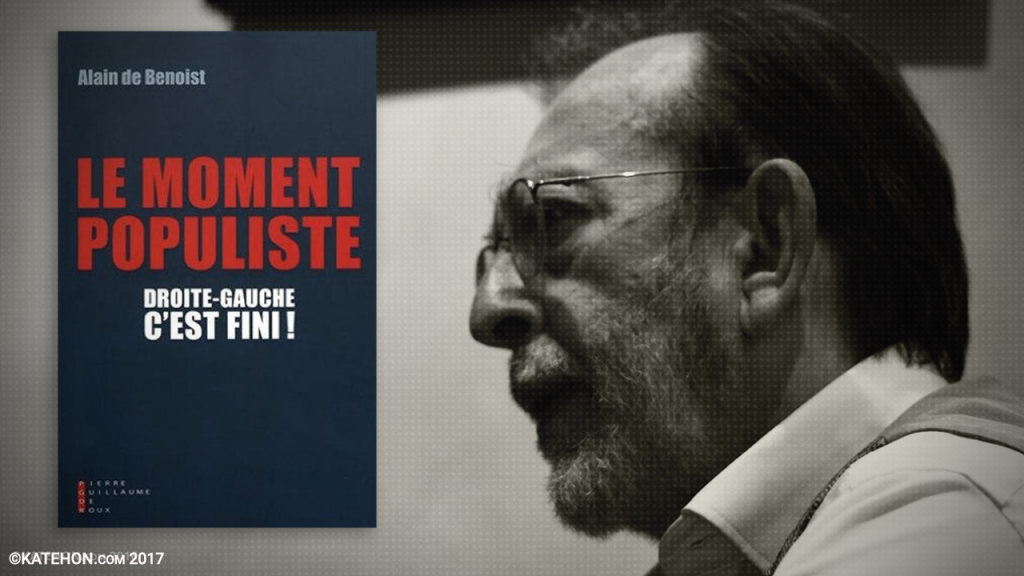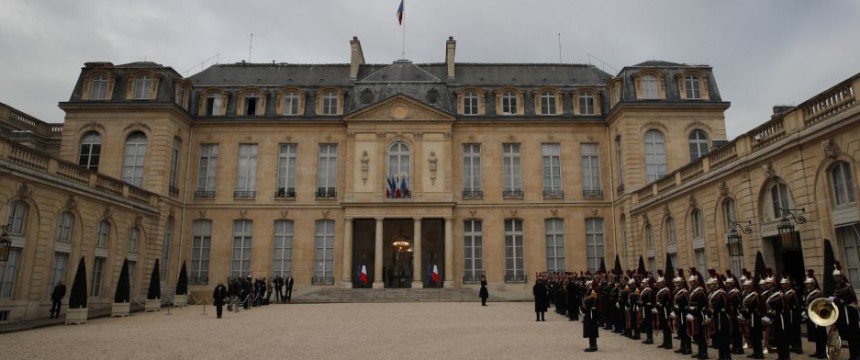Translation published on Katehon

February 20th, 2017 – We awaited Alain de Benoist’s analysis on the populist wave. Here it is with this veritable guidebook entitled Le Moment populiste – Droite-Gauche, c’est fini ! (Editions Pierre Guillaume de Roux). To read with urgency in light of future elections in France and Europe.
The extraordinary defiance of the ever growing layers of the population towards the “parties of the government” and the political class in general, to the benefit of new types of movements, which we call “populist”, is without a doubt the most striking fact of the transformations in the political landscape for at least two decades. The phenomenon even tends to accelerate, as the election of Donald Trump showed, occurring a few months after the British “Brexit.” The breadth of gap separating the people from the dominant New Class is confirmed everywhere. Everywhere new divides emerge that render the old left-right divide obsolete. But what exactly does “populism” mean? Is it a simple symptom of the crisis of representation? An ideology? A style? Or does populism translate a fundamentally democratic demand in the face of elites accused of no longer doing real politics and wanting to govern without the people? It is to these questions that this book responds, which starts from the most immediate current events in order to situate the political, sociological, and philosophical stakes of the debate.
Following the release of this major work and after reading it, we asked some questions to Alain de Benoist.
Breizh-info.com: “Right and left, it’s done with!”: such is the subtitle of your work. What do you base your statement on, knowing nevertheless that candidates, notably in France and we see it on the occasion of this pre-electoral period, always claim to be on the right or the left (including the “extremes) for the most part?
Alain de Benoist: I devoted a whole chapter of my book to the history of the right-left divide. Besides the fact that there has always existed a multitude of different rights and lefts, I show that what this divide refers to never stops evolving over time. To be on the left in 1880 was to militate for colonialism; to be on right was to be hostile to the separation of church and state! In the past the left was the party of class struggle, today it’s the party of individual rights, whereas a large part of the right has rallied to the defense of the market, to the axiomatic principle of interest and the economic explanation of the world. Lire la suite …







